|
San
Diego Jewish World
the past, dictators often tell us what crimes they will commit long before they strike. If we learn from that lesson, we will take early action against the Iranian leader who has told us that he hopes to murder many.”
Reps. Rothman and Kirk sit on the House Appropriations Committee’s Subcommittee
on State, Foreign Operations, and Related Agencies, which oversees U.S. spending
on foreign aid and the activities of the U.S. State Department. |
|||||||||||||
Addressing an open meeting of the Security Council, UN Special Coordinator for the Middle East Peace Process Michael Williams also said that renewed violence has threatened the stability of Lebanon and that Israel has faced fresh rocket attacks on its northern front. “The region as a whole is highly volatile and unstable, overshadowing efforts to make political progress,” Williams said during his briefing on the Middle East’s latest developments. Describing Hamas’ takeover of control in the Gaza Strip as “well planned and executed,” he condemned “the brutal violence… and the attacks on the legitimate institutions of President Abbas and the PA [Palestinian Authority] government” as totally unacceptable and said Secretary-General Ban Ki-moon regretted the failure of the National Unity Government. “Despite what has happened, Gaza and the West Bank remain one Palestinian territory, legally administered by one Palestinian Authority headed by President Abbas, who has appointed an emergency government led by Prime Minister [Salam] Fayyad.” Mr. Williams said it was now vital that Israel and the international community immediately deliver political and financial support to Mr. Abbas and the Palestinian government, including by releasing all previously withheld Palestinian customs and tax revenue. “What is also needed is action on previous Israeli commitments, including the evacuation of settlement outposts, removal of roadblocks and checkpoints and release of prisoners. Equally, Fatah and the PA should act on previous commitments, not only to end violence, but to thoroughly reform its institutions.” The UN’s most immediate humanitarian concern is to re-open the crossings between Israel and Gaza for commercial and humanitarian imports, the envoy told the Council, especially as the situation in Gaza has stabilized and food and medical shortages there have mounted. In response later to a question from journalists, Mr. Williams welcomed Israel’s move this morning to allow a number of people seeking urgent medical care to cross from Gaza. The UN Office for the Coordination of Humanitarian Affairs (OCHA) said that crossing points into and out of Gaza remain largely closed, and increasing food shortages are expected in the coming weeks. Under-Secretary-General for Humanitarian Affairs John Holmes called on Israel and the Palestinian authorities to regularize access for essential goods to prevent a further deterioration of the situation. The World Food Programme (WFP) reported that seven of its trucks successfully crossed into Gaza yesterday, and another nine trucks crossed today, carrying basic commodities. A separate truck brought medical supplies yesterday as well. The UN Children’s Fund (UNICEF) is aiming to send vaccines and medical and emergency kits, as well as fuel for urgent sanitation and water needs, to Gaza. Turning to Lebanon in his briefing, Mr. Williams expressed concern about last week’s assassination of the lawmaker Walid Eido and nine others in a Beirut bombing, and the continuing violence between the Lebanese Armed Forces and Fatah el-Islam gunmen at a Palestinian refugee camp in the north of the country. He also noted that two Katyusha rockets were fired on Sunday from southern Lebanon at the northern Israeli town of Kiryat Shmona, causing minor damage but no casualties, and called it “a most serious violation” of the Security Council resolution ending last year’s war between the Israeli Defence Forces (IDF) and Hizbollah. The preceding story was provided by the United
Nations.
Changing of the Defense Ministers in
Israel
“I am dismayed by the paltry response of the Administration to this ballooning humanitarian disaster,” Lantos said. “The United States must take more responsibility for its actions in Iraq. Neighborhoods, livelihoods, and families have been destroyed, and millions of Iraqis are living in utter chaos under the constant risk of death. This nation must live up to its moral obligation to do all it can for the millions who have been uprooted by the violence as they seek nothing short of their family’s survival.” Lantos is the author of the Iraq Reconstruction Improvement Act (H.R. 1581), which would provide a significant increase in U.S. assistance to Iraqi refugees in neighboring countries through the U.N. High Commissioner for Refugees and non-governmental organizations. The legislation also instructs the Administration to use its existing authority to admit 20,000 Iraqi refugees both this fiscal year and next. In the years following the Vietnam War, President Ford opened the door for over a million Vietnamese refugees to re-settle in the United States, Lantos noted. Lantos indicated his eagerness to work with colleagues such as Representatives Gary Ackerman (D-NY), Earl Blumenauer (D-OR) and Jan Schakowsky (D-IL) who have proposed legislation on these issues, as well as members of the Judiciary Committee to ensure a swift and comprehensive response to the Iraqi refugee crisis. “The ‘golden door’ of the United States must remain open to those around the world who seek to work hard and build a better life for their children,” Lantos said. “Refugees from violent conflict and political persecution across the globe deserve our attention and assistance. We must also not forget the millions of persecuted people who continue to pour out of Darfur, and the millions more desperate refugees and internally displaced people in other parts of Africa and around the world. We can and must address the burgeoning refugee crisis in Africa and other parts of the world at the same time that we respond to the plight of Iraqi refugees.” The foregoing article combined two press releases provided by the office of Congressman Tom Lantos
And what about the daily life of Israelis?
A.B.Yehoshua, a prominent Israeli writer, once angered his American hosts when he proclaimed that as an Israeli he did not feel he had much in common with them. He did not go so far as to negate the Diaspora’s existence, but his intention was clearly to dissociate Israel from Jews who choose to live outside the country. The image of Israel that emerges from the media is unavoidably distorted. The items that reach the headlines invariably concern bloody attacks or the antics of a misguided minority which regards it as its inalienable right to exert material and emotional blackmail on a society which adheres to democratic values. The daily life of the vast majority of Israelis is not one of bloodshed and suffering. Zionism may or may not be a factor, but life on the whole is pleasant for the masses. No-one has an hour-long commute to work in overcrowded underground trains. People do not have to endure so-called summers of gray skies and rain. The sun shines here every day for most of the year. There is a plethora of fresh fruit and vegetables, almost universal access to kosher food, and the freedom to adhere to whichever dictates of one’s religion one prefers. And best of all, since Israel is a small country, it does not take more than a couple of hours to get together with friends and family. There are plenty of media reporting the newsworthy aspects of life in Israel. In its own small way, this column seeks to redress that imbalance. The foregoing article was reprinted from the AJR Journal (Association of Jewish Refugees) in England.
Ezer Mizion provides day of respite for cancer patients and their families TEL AVIV (Press Release)—Cancer is a nightmare. All petty strivings, disturbances, and arguments fall by the wayside as the patient and his family come face to face with the possibility of death. The emotional strain of confronting the very real prospect of there being no future is so draining and leaves the family little stamina to handle the battle of fighting to survive. Ezer Mizion has undertaken to provide the cancer patients and their families with a day of sunshine amidst the gray of despair. Painful cancer treatments, nausea, and unpleasant side effects all receded into the background for seventy children with cancer and their families as they enjoyed a pre-summer "happening" at Oranit, Ezer Mizion's Guest Home for children with cancer.
And the mommies….For one day, mothers of children with cancer were able to put aside their worries and concerns about their children’s health - thanks to a day of pampering at Tel Aviv’s Sheraton City Tower Hotel. “It is impossible to describe what this day did for me,” said Chani, whose teenage son has cancer. “Even when I am not taking care of him, I am always burdened with worry about my son. You have given me the greatest gift of all - release, relaxation and a day of fun.” And mothers with cancer whose every moment is colored in black as they worry about their children growing up as orphans…..Over 100 mothers battling cancer enjoyed a day of pampering. Jewelry-making and cake-decorating workshops enabled the women to indulge their creativity. Upbeat performances and communal singing brought smiles and laughter to those who had been living among tears. "The idea was to get them out of their hospital routine, to spoil them for a day, to give them a vacation, empower them and make them laugh - to give them the strength to continue with their difficult struggle," noted Rivka Friedman, social work supervisor at Ezer Mizion's Oranit Home for Children with Cancer, which sponsored the events. Sponsorships for forthcoming events are available. Information is available from Ezer Mizion at (718) 853 8400. The preceding story was provided by Ezer Mizion. Resolution to honor Morgenthau, others, for Holocaust rescue efforts draws Filner support SAN DIEGO (Press Release)—Congressman Bob Filner (Democrat, California) today announced his support for H.Res. 226, to recognize the American government officials who played a critical role in creating the "War Refugee Board" to rescue Jews and other persecuted minorities during the World War II Holocaust.
President Roosevelt quickly signed Executive Order 9417 on January 22, 1944 stating that "it is the policy of the Government to take all measures within its power to rescue the victims of enemy oppression who are in imminent danger of death..." and creating the War Refugee Board, composed of the Secretaries of State, Treasury, and War, to carry out this policy. On January 25, 1944, the War Refugee Board issued a cable to all U.S. Diplomatic Missions abroad to forestall the Nazi plot of extermination and to develop programs to increase the flow of Jewish and other refugees to European neutral counties. "The War Refugee Board is credited, by academic studies, with rescuing as many as 200,000 Jews from Nazi persecution," said Filner. This resolution in the House of Representatives honors the officials who worked to establish the War Refugee Board and a more active United States policy to rescue Jews and other victims of Nazi repression. These officials include Treasury Secretary Henry Morgenthau, Treasury Assistant General Counsel Josiah DuBois, and John Pehle, a 33-year old attorney in the Treasury Department who helped to draft the memorandum and who became Executive Director of the War Refugee Board. H.Res 226 was introduced in the House by Congresswoman Zoe Lofgren.
House adopts resolution honoring Jacob Birnbaum WASHINGTON, D.C. (Press Release)– The House on Monday, June 18, adopted House Resolution 137, sponsored by Congressman Jerrold Nadler (Democrat, New York), a resolution to honor the life and six decades of public service of Jacob Birnbaum. Often considered the father of the movement to liberate the Soviet Jewry, Birnbaum, has worked for more than six decades to free Soviet Jews from religious, cultural, and communal extinction. The resolution was adopted on a voice vote. "Jacob Birnbaum is a true hero, and I am proud to call him a fellow New Yorker," said Nadler. "Born in Germany, Mr. Birnbaum’s family fled the Nazis. In 1946 after World War II, he devoted several years providing relief for younger survivors of the Nazi and Soviet totalitarian systems. Based on his experience with these survivors, when he settled in America years later he founded the Student Struggle for Soviet Jewry. This past December, Mr. Birnbaum celebrated his 80th birthday, and I thank my colleagues for honoring the life and work – the sixty years of public service – of this remarkable human rights activist. Indeed, even in his 81st year, Mr. Birnbaum continues to support groups engaged in the Jewish education of former Soviet Jews and their children. His dedication to his beliefs remains as strong as ever."
The preceding story was provided by
the office of Congressman Jerrold Nadler “The Affirmation of the U.S. Record on the Armenian Genocide” resolution (H. Res. 106) calls on the President to “ensure that the foreign policy of the United States reflects appropriate understanding” of the “Armenian Genocide” and to “accurately characterize the systematic and deliberate annihilation of 1,500,000 Armenians as genocide.”
Rep. Schiff is a member of
the Congressional Caucus on Armenian Issues, the co-founder of the Democratic
Study Group on National Security and a member of the House Appropriations
Committee the House Judiciary Committee, and the House Select Intelligence
Oversight Panel.
Why JINSA
takes a 'contrarian' position on Abbas First, Abu Mazen may be the President of all the Palestinians, but he has/had a legislature dominated by the freely elected Hamas. For the U.S. to now say that we accept the results of the Presidential election but not the result of the legislative election is poor policy. Second, Abu Mazen did nothing to change the culture of corruption he actively helped Yasser Arafat develop during the Oslo years. How could the Palestinians be the world's largest per capita aid recipients - according to the Wall Street Journal, "the PA has so far received more foreign aid than all of Europe received under the Marshall Plan" - and still have 30 percent of its people dependent on food aid from outside? For the U.S. to agree to provide more money with less control is poor policy. Third, two American generals tried their hand at training Palestinian forces to protect themselves - if not to protect the people they were supposed to serve. We never liked the mission those generals were given, but we had assumed they wouldn't fail. They failed; utterly failed. The Fatah soldiers trained by American officers did not protect the civilians. They did not protect the institutions of the PA. They did not protect their wounded comrades, some of whom Hamas shot in their hospital beds while others were tossed out of buildings. The men our generals trained turned and ran ignominiously. For the U.S. to provide more arms with less control is poor policy. Fourth, Abu Mazen at the height of his capability (and this is not it) was not a partner in the establishment of a two-state solution for Palestinians and Israelis. He was willing to discuss day-to-day security and economic policy for the territories, and believed suicide bombings were counterproductive to Palestinian goals (though not necessarily bad in and of themselves). At the same time, he was entirely committed to Arafat's three-point program: an independent Palestinian State with its borders undefined; Jerusalem as the capital; the so-called "right of return" of the original 1948 Palestinian refugees and their descendants to places inside Israel from which they claim to have come. If he couldn't accept the legitimacy of Israeli sovereignty then, for the U.S. to believe he can and will while under siege from people better trained, better armed and more ideologically committed than he, is poor policy. Fifth, Abu Mazen has already indicated that he wants to talk to Hamas about the future. Since they won and he lost, it is safe to assume that Fatah will move toward the Hamas position rather than assume Hamas will move toward the Fatah position. America has already lowered the bar of expectations of Fatah responsibility to the ground. As Fatah becomes more like Hamas in order to survive, the only way for the U.S. to lower the bar further would be to dig a hole. For the U.S. to begin digging is poor policy.
Bryen is special projects
director of the Jewish Institute for National Security Affairs.
*U.S. Sen. Norm Coleman (Republican, Minnesota) is pushing alternative legislation in light of an expected veto by President George W. Bush of a stem-cell legislation. His legislation, which has already been approved in the Senate, would focus on using stem cells from embryos that have died natural deaths. The Associated Press story by Deb Riechmann is in today's San Diego Union-Tribune. *San Diego District Attorney Bonnie Dumanis, in a commentary in the San Diego Union-Tribune on the disbarment of Mike Nifong for his handling of the Duke rape case, said there are policies and procedures in her office to guard against such abuse of power. *U.S. Sen. Dianne Feinstein (Democrat, California) welcomed news that Boeing will keep its Long Beach plant open for at least six months after the last C-17 Air Force transport is built, meaning shutdown would not occur until at least 2010. The story by Peter Pae and Martin Zimmerman is in today's Los Angeles Times. *Aaron Feldman's Sunroad Enterprises building at Montgomery Field was again the focus of quarreling between San Diego City Attorney Michael Aguirre and Mayor Jerry Sanders. Aguirre wants Sanders to simply issue a stop work order on the building which the FAA says is too high. Sanders replied it's only the top two floors that are in controversy. The story by David Hasemyer is in today's San Diego Union-Tribune. *U.S. Rep. Bob Filner (Democrat, California) is in the crosshairs of the San Diego Union-Tribune editorial board. The newspaper criticized him in an editorial for paying the campaign management firm of his wife, Jane, out of campaign funds, saying this amounts to nepotism. *Daniel Futterman, who portrays slain Wall Street Journal reporter Daniel Pearl in the movie A Mighty Heart share not only a first name, but also Jewish identity. That was a subject that Futterman spoke about at length with Pearl's parents Ruth and Judea Pearl as he prepped for the part. Gina Piccalo has the story in today's Los Angeles Times. *Israel's Ambassador to the United Nations-Geneva Itzhak Levanon says a decision by the United Nations Human Rights Council to continue monitoring Israel, while dropping its surveillance of Cuba and Belarus, "perpetuates the immoral fixation on Israel." The Associated Press story is in today's San Diego Union-Tribune. *U.S. Sen. Carl Levin (Democrat, Michigan) has bluntly told the automakers in his home state that if they don't themselves propose a higher mileage standard for future cars, his colleagues in the Senate are likely to require them to aim even higher. The New York Times News Service story by Micheline Maynard is in today's San Diego Union-Tribune. *I. Lewis "Scooter" Libby, former chief of staff to Vice President Dick Cheney, has filed an appeal against a judge's order that he begin serving a prison sentence on his conviction of perjury and obstruction of justice. Libby's lawyers argued he has a good chance of reversing his conviction and should be permitted to remain free while court processes are pending. The Associated Press story is included in a package of briefs in today's San Diego Union-Tribune. *Jacqueline Siegel has resigned as executive director of the San Diego Performing Arts League. She said fundraising was not occurring quickly enough to support her salaried position. The brief story is in the "Short Takes" column of today's San Diego Union-Tribune. *Lynne Herold, a criminologist with the Los Angeles County Sheriff's Department, is expected to be the last witness for the prosecution in the Phil Specter murder trial. Then it will be the defense's turn. The Copley News Service story by Matt Krasnowski is in today's San Diego Union-Tribune. *Lola Wasserstein, 89, upon whom some of her playwright daughter Wendy Wasserstein's characters were based, has died. The obituary is in today's Los Angeles Times. *Ben Weinstein, owner of the Heritage Book Shop on Melrose Avenue, is closing the antiquarian book store known for celebrity clients. The business was doing fine, but he received an offer from someone who wanted to buy the building that was too good to refuse. The story by Scott Timberg is in today's Los Angeles Times. *Los Angeles County Supervisor Zev Yaraslovsky said he is "losing hope" that troubled King-Harbor Hospital can be brought up to standards quickly enough for it to pass an inspection that would permit it to remain open. The story by Robert J. Lopez and Susannah Rosenblatt is in today's Los Angeles Times.
Will Tony Blair be next Middle East peace envoy? MR. MCCORMACK: Well, I would remind you that the Prime Minister still does have a day job at the moment. He is Prime Minister of the UK. And far be it for me to comment on what his future plans might be once he leaves office. But putting that aside for a second; there is a need, as President Bush and Prime Minister Olmert talked about just yesterday at the White House, for the need to lay the groundwork for a Palestinian state. And part of laying that groundwork is building up Palestinian institutions, building up economic capacity, building up those economic institutions, building up those political institutions within the Palestinian system so that when you do have a Palestinian state eventually, you have a state that can function as a well-governed state that serves the needs of the Palestinian people. Now, the Quartet did previously have an envoy that performed some of those functions in the very discrete -- in the discrete case of Gaza, Jim Wolfensohn, and he did a terrific job on behalf of the Palestinians and on behalf of the Quartet. So there is, we believe, a need to perform that particular function in working with the Palestinians in the Palestinian system to develop those institutions. And again, putting aside the political track because that's something that Secretary Rice working with President Bush is going to work directly with the Israelis, the Palestinians as well as Arab states in consulting with the Quartet. So there is this idea out there of can we identify a person that could fulfill those functions. And I think that the idea has some merit. Clearly there needs to be some more consultations on the matter. But as for particular individuals at this point I'm certainly not going to get into it. QUESTION: Would the U.S. Government support Tony Blair then? I mean, is he damaged because of Lebanon and Iraq? MR. MCCORMACK: Again, I'm not going to -- far be it from me from this podium to comment on Prime Minister Blair's future plans. Prime Minister Blair is somebody who is passionate about the issues of the Middle East and who has played a very constructive role in the international system on these issues -- a clear leader within the international system of very high standing. So I would expect that Prime Minister Blair certainly would have a variety of different options from which he could choose once he leaves office. But as for any particular comment on these news stories I'm going to avoid that at this point. QUESTION: Sean, just to follow up. MR. MCCORMACK: Charlie. QUESTION: Has David Welch been in London consulting with Prime Minister Blair? MR. MCCORMACK: Yes. Yeah, David Welch is in London and he's consulting with our British colleagues on a variety of issues related to David's portfolio. QUESTION: And that would include the aforementioned issues of how to build Palestinian infrastructure of Palestine. MR. MCCORMACK: I think -- Charlie, I'm going to leave the diplomatic discussions within that diplomatic channel. But I think you can safely assume that they will touch upon the issue of the Israeli-Palestinian track, but more specifically how do you work to build up those Palestinian institutions. It's a very discrete task, separate from the political track, but nonetheless, one that is going to be absolutely critical for that day when a Palestinian state does come into being so that you can be concerned not only with what the outlines of a Palestinian state might be, but what is actually going on inside that state and that's one of the important points that President Bush made as far back as 2002. And it all falls within the framework of laying this groundwork for an eventual Palestinian state. Zain? QUESTION: When was the last time that Secretary Rice spoke to Tony Blair directly? MR. MCCORMACK: I can't tell you exactly. Within the past month or two I know that they have spoken. And certainly they saw one another when Prime Minister Blair was here for his visit with President Bush. I don't know if they have spoken subsequent to that, though. Yeah. QUESTION: Mr. Abbas gave a wide ranging speech just now. MR. MCCORMACK: Excuse me. QUESTION: Mr. Abbas gave a wide ranging speech just now. Among issues he raised was that they were foreign elements fomenting the crisis in Palestinian territories. He also said -- talked about a premeditated plan between Hamas and foreign elements abroad in fueling this crisis. And he also talked about a plot -- Hamas plot to murder him. MR. MCCORMACK: Well, I certainly can't offer any particular comment on those specific allegations beyond the fact that we, as well as others, have had deep concerns about Hamas' links to outside groups, outside states as well as other violent extremist groups that have been operating in the Palestinian areas. That's no secret. Whether that's Syria or whether that's Iran or others, it's of concern not only to us, but apparently of grave concern to President Abbas as well. Yes. QUESTION: Can you take us any further than this morning on the Quartet phone call and any schedule going forward? MR. MCCORMACK: At this point -- I don't really have much more to offer at this point on the Quartet phone call. They were mainly concerned with the topic of when they would next get together. And I think they're still sorting that out at this point as to when the Quartet would meet again. Obviously there had been plans for Quartet meetings at the end of this month in the region. I think given the events, as we have seen them unfold in the Palestinian areas, would indicate that at some point we will have that meeting. But I'm not sure that that will take place at the end of June. You want this Palestinian Government to be able to get its feet on the ground and start working on behalf of the Palestinian people and give that some time to happen; maybe have the opportunity for President Abbas and Prime Minister Olmert to meet as well. But we're going to be in close contact with the members of the Quartet and I wouldn't be surprised if in the coming weeks you would see even an envoys-level meeting in the region and that at some point, the principals will get together and I couldn't tell you exactly where or when. But nonetheless, they are in close contact, if not actually meeting together. Anything else on the Middle East? QUESTION: Sean, the Quartet meeting in Egypt has been canceled, right? It's confirmed. MR. MCCORMACK: Again I think that given the events in the region, I think that at some point that meeting is going to take place. I'm not sure that it will take place at the end of this month, though. Yeah, Zain. QUESTION: I just want you to respond to some comments that former President Jimmy Carter has made, basically accusing the U.S. and Israel and the European Union of trying to divide the Palestinian people by giving aid to Abbas and nothing to Hamas and Gaza. I'd like you to respond to that. {Jump to continuation}
________________________________________________
SAN DIEGO (Press Release)—The clients of Jewish Family Service’s Foodmobile program, the only kosher home-delivered meal service in San Diego, have the option of receiving more food this summer. A second ‘light’ meal will be offered in addition to the hot kosher meal delivered daily by volunteers. The kosher ‘light’ meal will consist of a sandwich, fruit or salad (potato, pasta, etc.) and juice. This added service will benefit the many Foodmobile clients who are unable to leave home to shop for food or prepare meals. Foodmobile has been delivering kosher meals to homebound older adults since 1971 and younger homebound adults since 1998. All food is Kosher, and is therefore prepared under much higher standards. The meals are non-dairy, which makes them ideal for individuals who are lactose intolerant. The Foodmobile kitchen prepares approximately 250 meals per day for home delivery and dining programs at Jewish Family Service senior centers. Every meal is prepared fresh each day, giving food the quality and flavor of a home-cooked meal. Foodmobile serves most areas in San Diego County, Monday through Friday, with frozen meals available for the weekends. Meals are delivered by volunteers, who deliver a hot meal with a warm smile, while checking on the mental and physical well being of each client. For additional information about the Foodmobile program contact Rosann Place at (619) 229-2390 or visit www.jfssd.org.
The preceding article was provided by Jewish Family Service
Copland’s Appalachian
Spring delights By Eileen Wingard SAN DIEGO—The Tifereth Israel Community Orchestra (TICO), in its second annual concert at Ohr Shalom on Sunday afternoon, June 10, presented a delightful program of diverse musical periods and styles. The first half presented selections ranging from the baroque music of George Frederic Handel to the 20th century Americana idiom of Aaron Copland. The second half featured post- romantic offerings by Gustav Mahler and Georges Enesco. The orchestra performed with great presence. The Ohr Shalom Social Hall, a smaller venue than Tifereth Israel’s Cohen Social Hall, and with a high ceiling and a wooden floor under the musicians, provided acoustics that permitted the musicians to hear each other more distinctly. Consequently, the orchestra played with good intonation and rhythmic security. Also, since this was the second performance of this program, it was played with increased confidence. The Handel work was a five-movement suite adapted from several of Handel’s Organ Concerti by TICO’s trumpeter J. Abelardo D. Flores. The talented arranger assigned the organ parts to various woodwinds and retained the string parts intact. The five movements received spirited readings, and in the fugal passages of the Finale, each voice entered assertively. Copland’s Pulizer Prize-winning Appalachian Spring opened with delicate woodwind passages. Particularly outstanding was the work of principal clarinet Joseph Stein. Especially effective was when the French horn followed the bassoon with the same note, beautifully on pitch, continuing the pastoral line. The surprise burst of unison strings that followed, expressed jubilant elation. Although there were some tenuous moments before the entrance of the familiar Shaker melody, “Simple Gifts,” for the most part, Conductor David Amos and the orchestra performed exceptionally well in this challenging work. Even professional orchestras find challenging the constantly changing meters, melodic leaps and asymmetric rhythms of Appalachian Spring. After intermission, Baritone Joe Pechota sang Mahler’s Songs of a Wayfarer, four gems with melodies that Mahler recycled in several of his symphonies. Pechota interpreted the songs with sensitivity and understanding. The orchestra played the intricate accompaniments well, albeit often covering the soloist. Enesco’s Roumanian Rhapsody No. 1 was a crowd-pleasing finale with its contrasting tempi and dynamics, a cornucopia of Eastern European folk dance tunes. Once again, Ohr Shalom members Muriel and Leonard Warren are to be thanked for helping to arrange this outstanding cultural event.
BASEBALL JEWS—There were these stories, tables and notes in the San Diego Union-Tribune dealing with Jewish major league baseball players: John Grabow threw just two pitches in a game in which his Pittsburgh Pirates utilized six pitchers to tame the Seattle Mariners 5-3. Though he got the batter out, his earned run average still is a high 6.27... Shawn Green went hitless in three times at bat as his New York Mets were shut out 9-0 by the Minnesota Twins... Mike Lieberthal came in as a pitch hitter for the Los Angeles Dodgers in the ninth inning, but he struck out—not that anyone but he minded. The Dodgers walloped the Toronto Blue Jays 10-1....Kevin Youkilis of the Boston Red Sox is currently the eighth most productive batter in the American League. His average is .333. ...
News Sleuths... MR. MCCORMACK: Mm-hmm. QUESTION: And he also said that by not supporting Hamas when they won the election victory, that we're criminals. That's a sort of a second element to that. MR. MCCORMACK: You know, the former president is a private citizen and he's going to have his own opinions and I'm not -- certainly not going to get into the position of criticizing a former president of the United States. But quite clearly, on the issue of our actions in the wake of the Hamas victory in the elections, we have a different view and I think that the President and Secretary of State have articulated that different point of view. As for the idea that we are somehow treating Fatah and Hamas differently, absolutely; Hamas is a terrorist organization and we're not going to provide aid to a terrorist organization. Neither we nor the European Union or others around the world are going to provide aid to a terrorist organization. Providing aid to Hamas and -- is not the sine qua non for being concerned with the humanitarian situation of the Palestinian people. We're very concerned about the humanitarian plight of the Palestinian people, a condition -- one might add -- that has been brought on by the attack of Hamas on legitimate Palestinian institutions. So because of our concern for the future humanitarian plight of the Palestinian people, the Secretary announced just the other day that we are going to pledge $40 million to the United Nations Relief and Works Agency so that they can provide assistance specifically to Palestinians in Gaza. Now I would add as an aside to all of this, it is through Hamas' own actions that they have brought this situation upon themselves and, sadly, on the million-and-a-half people in the Gaza Strip. Hamas, through their actions, has now taken on the responsibility for providing food, medicine, electricity, gas for all of those people. And I would submit to you that Hamas' actions take the Palestinian people in the Gaza farther away from their dream of a Palestinian state. So this idea that somehow we are not concerned with the plight of the Palestinian people, I think, is simply wrong. QUESTION: Just -- if I may just follow up, Hamas has come out today with a specific list of what it says -- it seized something like $400 million in U.S. military equipment from Fatah. Do you know anything about this? Can you confirm that? Can you shed any more light on that?
MR.
MCCORMACK:
Well, that would be very odd since the extent of the security assistance program
that was only just beginning and, in fact, was only in the tens of millions of
dollars -- so I would caution you against using figures like that coming out of
Hamas. MR. SNOW: Well, we're not going to tell you the amounts. Obviously we're in the process -- next year it's going to come time once again to re-up military aid in the 10-year package. And when people have figured out the numbers, I'm sure they'll be happy to announce them. What the President is really doing is once again reiterating support for Israel, which is a bulwark for democracy and an absolutely irreplaceable and valuable ally.
>> MR. SNOW: The President has made it a graceful point of his administration not to respond to critiques from ex-Presidents. And I think I will continue to try to maintain that sense of decorum. Q No matter what the ex-President says? I mean -- I have one other -- MR. SNOW: You know, Les, you're a priest, you understand -- you're a former priest, and you understand that sometimes social graces are something worth demonstrating in public. Q I have to admit, that is a wonderfully circuitous response, and admirable. MR. SNOW: Thank you. Q You're welcome. Q Is the White House pushing for Tony Blair to be the Middle East Quartet Envoy? MR. SNOW: No. But on the other hand -- look, we looked at reports. Right now Tony Blair is Prime Minister. What we're also doing, frankly, is we're engaged in our -- we've got Nick Burns going to the region, we've got a lot of stuff going on. But at this particular point, we're not in the business of designating envoys. Q That was my question -- has President Bush talked to Prime Minister Blair about being a Quartet envoy?
MR. SNOW: I don't
think he has. I don't have any knowledge of it. My guess is I'd know, but I
don't know anything.
|
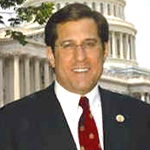 Rothman’s bipartisan Resolution (H.Con.Res.21), which he introduced with
Rep. Mark Kirk (Republican, Illinois), passed by a vote of 411 to 2.
Rothman’s bipartisan Resolution (H.Con.Res.21), which he introduced with
Rep. Mark Kirk (Republican, Illinois), passed by a vote of 411 to 2. 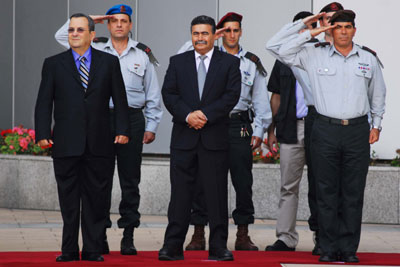 KIRYA
BASE, Israel, June 19 (Press Release)—Below is footage taken by the Israel
Defense Forces of a portion of the change of command ceremony by which former
Prime Minister Ehud Barak assumed the duties of Defense Minister, succeeding
Amir Peretz, whom he previously had succeeded as head of the Labor Party.
KIRYA
BASE, Israel, June 19 (Press Release)—Below is footage taken by the Israel
Defense Forces of a portion of the change of command ceremony by which former
Prime Minister Ehud Barak assumed the duties of Defense Minister, succeeding
Amir Peretz, whom he previously had succeeded as head of the Labor Party. 
 “I fully
support the resumption of aid programs for the Palestinians that were suspended
when Hamas took power. I consider the government of Salaam Fayyad, under
President Abbas, as fully legitimate, and its appointment is long overdue. Of
course, we have to make certain that none of our aid for the Palestinians ends
up in Hamas' bloody hands, and I look forward to receiving
“I fully
support the resumption of aid programs for the Palestinians that were suspended
when Hamas took power. I consider the government of Salaam Fayyad, under
President Abbas, as fully legitimate, and its appointment is long overdue. Of
course, we have to make certain that none of our aid for the Palestinians ends
up in Hamas' bloody hands, and I look forward to receiving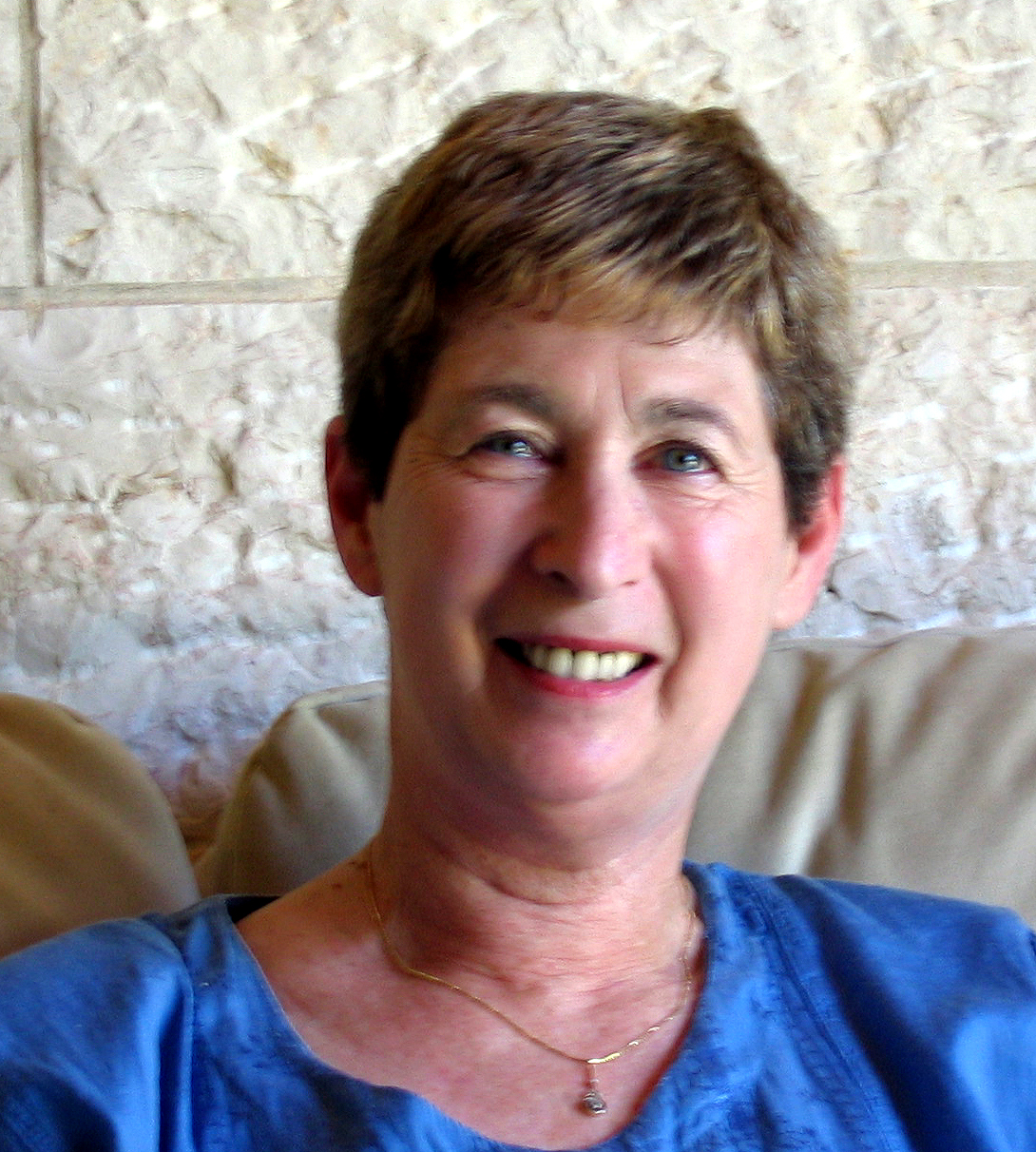

 Your specialist in
Your specialist in
 They enjoyed a delectable dairy
meal, made more delicious by the fact that they produced most of the items on
the menu themselves! The children couldn't contain their excitement as they
made their own cheese, ground their own flour, and all on their own - with a bit
of guidance - put together a scrumptious meal.
They enjoyed a delectable dairy
meal, made more delicious by the fact that they produced most of the items on
the menu themselves! The children couldn't contain their excitement as they
made their own cheese, ground their own flour, and all on their own - with a bit
of guidance - put together a scrumptious meal.  "In 1943
and early 1944, an extraordinary group of Treasury Department officials sought
to change the policies of the State Department, policies that opposed American
government action to save those being systematically exterminated by the Nazi
German government," said Filner. "They drafted a memorandum urging
"In 1943
and early 1944, an extraordinary group of Treasury Department officials sought
to change the policies of the State Department, policies that opposed American
government action to save those being systematically exterminated by the Nazi
German government," said Filner. "They drafted a memorandum urging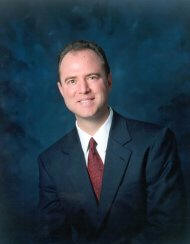 Schiff
introduced the resolution in January along with Reps. Frank Pallone Jr.
(Democrat, New Jersey) and Republicans Joe Knollenberg of Michigan and George
Radanovich of California.
Schiff
introduced the resolution in January along with Reps. Frank Pallone Jr.
(Democrat, New Jersey) and Republicans Joe Knollenberg of Michigan and George
Radanovich of California. Jews
in the News
Jews
in the News
 News Sleuths:
News Sleuths: 
 Mazal
Tov—A baby boy was born today
to Debbie & Michael Rosen. As he weighed 8 pounds, 14 ounces and measured
21 inches, Michael Rosen suggested the delivery was a "valiant, Herculean feat
of engineering by Debbie (and her OB)."
Mazal
Tov—A baby boy was born today
to Debbie & Michael Rosen. As he weighed 8 pounds, 14 ounces and measured
21 inches, Michael Rosen suggested the delivery was a "valiant, Herculean feat
of engineering by Debbie (and her OB)."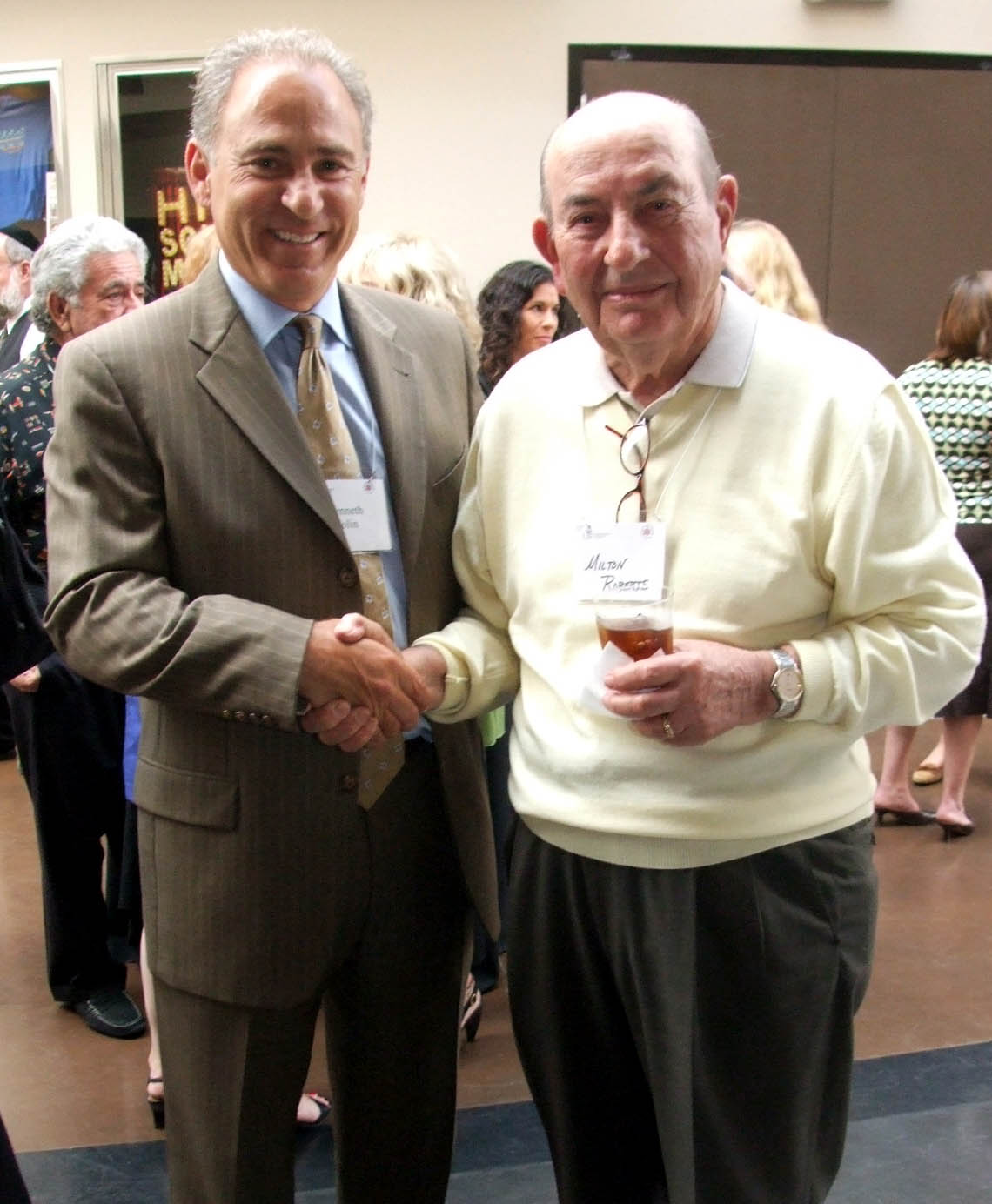 MEMORIES—Among
the attendees of the United Jewish Federation's annual meeting on Tuesday
evening was Milton Roberts, its oldest living president. Roberts,
93, was president in 1956 when, he said, there were perhaps 8,000 Jews in san
Diego, and the UJF considered raising $295,000 in a single year quite a feat. He
recalled that he was living at the time in the Kensington area of San Diego,
when, unexpectedly, Roger Revelle, knocked at his door. He told Roberts he had
dropped by because he was trying to raise money for various causes including the
La Jolla Playhouse, but was finding that unlike other cities where the Jewish
community was so supportive of the arts, San Diego Jews seemed uninterested.
"I explained to
MEMORIES—Among
the attendees of the United Jewish Federation's annual meeting on Tuesday
evening was Milton Roberts, its oldest living president. Roberts,
93, was president in 1956 when, he said, there were perhaps 8,000 Jews in san
Diego, and the UJF considered raising $295,000 in a single year quite a feat. He
recalled that he was living at the time in the Kensington area of San Diego,
when, unexpectedly, Roger Revelle, knocked at his door. He told Roberts he had
dropped by because he was trying to raise money for various causes including the
La Jolla Playhouse, but was finding that unlike other cities where the Jewish
community was so supportive of the arts, San Diego Jews seemed uninterested.
"I explained to




 .
.